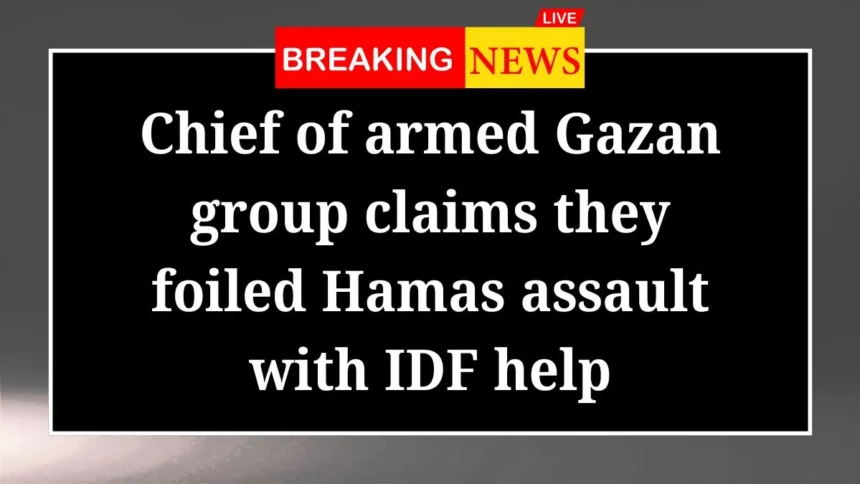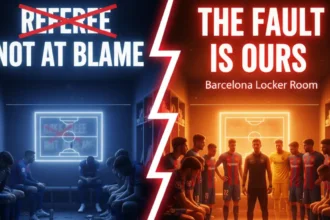In a startling flip of occasions, a frontrunner of an armed Gazan group working in Gaza introduced that they thwarted a deliberate assault from Hamas, allegedly with help from the Israel Protection Forces (IDF). This revelation provides one other layer of complexity to the already intricate net of relationships amongst numerous militant factions within the area. The claims have been made throughout a latest press briefing, stirring discussions amongst political analysts and observers of the Israeli-Palestinian battle.
The Context of Inner Strife in Gaza
Gaza, a densely populated coastal enclave, has lengthy been a focus of pressure between numerous Palestinian factions, primarily Hamas and the Palestinian Islamic Jihad (PIJ). Since Hamas took management of Gaza in 2007, inner rivalries have endured, resulting in a fragmented panorama of energy and affect amongst militant teams. The latest claims by the chief of the PIJ spotlight these inner divisions, suggesting that factions might flip in opposition to one another amid ongoing conflicts with Israel. Traditionally, Gaza has been a battleground not only for exterior conflicts but additionally for inner energy struggles. The rivalry between Hamas and the PIJ has typically resulted in violent confrontations, with every group striving to say its dominance and legitimacy amongst Palestinians. Regardless of their shared objective of resisting Israeli occupation, their strategies and ideologies differ considerably, typically resulting in clashes over technique and management.
The Alleged Assault Foiled
In keeping with the PIJ chief, who spoke on situation of anonymity, his group managed to intercept a deliberate assault orchestrated by Hamas. He claimed that the IDF offered intelligence that enabled them to stop the operation. Though particulars stay sparse and unverified, the chief emphasised the significance of this collaboration, suggesting that it’d signify a shift within the dynamics amongst Gaza’s armed factions. This assertion raises questions concerning the nature of alliances in a area typically characterised by enmity. The PIJ chief indicated that the intelligence sharing was essential for his or her success, stating, “With out the data offered by the IDF, we couldn’t have acted in time.” This daring declare, if substantiated, may alter the notion of the battle panorama in Gaza, suggesting that even rival factions would possibly discover widespread floor on the subject of quick threats.
Historic Background of Hamas and PIJ Relations
The connection between Hamas and the PIJ has been traditionally fraught with pressure. Each teams share a dedication to armed resistance in opposition to Israel; nevertheless, they typically vie for management and affect inside Palestinian society. The PIJ, whereas smaller than Hamas, has been recognized for its militant operations and has sometimes aligned itself with different factions in opposition to a standard enemy. The rivalry intensified after the 2014 Gaza struggle, which noticed Hamas emerge as a dominant pressure whereas the PIJ struggled to take care of its relevance. In recent times, the PIJ has sought to say its presence by means of numerous navy operations, typically even launching assaults independently of Hamas. The political panorama shifted once more with the rise of varied regional powers and altering alliances, complicating the already intricate dynamics in Gaza.
Implications of the PIJ’s Claims
The PIJ chief’s claims may signify extra than simply an inner energy battle; they could mirror broader geopolitical shifts within the area. Analysts are starting to invest whether or not this incident may result in a realignment of factions in Gaza, with potential ramifications for Israel’s safety technique. Professional commentators counsel that if the IDF is certainly sharing intelligence with the PIJ, this might point out a strategic method aimed toward weakening Hamas, which Israel views as a big menace. “This may very well be a calculated transfer by Israel to create discord amongst its enemies,” mentioned Dr. Miriam Cohen, a Center East analyst on the Institute for Peace Research. The shift, if confirmed, may result in a extra fragmented Palestinian resistance, complicating peace efforts and negotiations with Israel.
The Response from Hamas
In mild of the PIJ’s assertions, Hamas has remained largely silent, which is uncommon for a gaggle that sometimes responds swiftly to any perceived threats to its authority. This silence might point out an inner disaster or acknowledgment of a extra complicated scenario than beforehand understood. Nevertheless, Hamas’s official media retailers have downplayed the claims, portraying them as propaganda meant to undermine their legitimacy. “The PIJ is trying to achieve consideration by fabricating tales that serve their narrative,” a Hamas spokesperson acknowledged in a short interview. This response displays the continuing pressure between the 2 factions and highlights the skepticism with which such claims are sometimes met throughout the area.
The Function of the Israel Protection Forces
The IDF has maintained a coverage of restricted engagement with Palestinian factions exterior its direct adversaries. Nevertheless, the opportunity of intelligence-sharing with the PIJ, if correct, may characterize a shift in navy technique. The IDF has not formally commented on this particular incident, however historic precedent reveals that Israel typically employs tactical alliances to destabilize its opponents. The IDF’s earlier engagements with numerous Palestinian factions have sometimes centered on making certain Israeli safety. By probably collaborating with the PIJ, Israel could also be trying to create a rift between Hamas and its rivals, thereby weakening each teams’ collective resistance capabilities. This technique, whereas dangerous, underscores the altering dynamics within the ongoing battle.
Analyzing the Broader Affect
The implications of this incident lengthen past Gaza. It raises questions concerning the stability of the Palestinian territories and the potential for future conflicts amongst numerous factions. As tensions rise, the opportunity of a wider confrontation or a realignment of energy dynamics looms massive. The complexities of the scenario are underscored by the truth that any inner battle amongst Palestinian factions can have vital ramifications for peace negotiations with Israel. Consultants warn that the failure to deal with these inner divisions might hinder any efforts towards a cohesive Palestinian technique in opposition to Israeli insurance policies. The continued strife inside Gaza may present Israel with a tactical benefit, as inner discontent amongst Palestinian factions would possibly stop them from presenting a united entrance. This fragmentation may additional complicate peace efforts, as exterior negotiations typically depend on the idea of a singular Palestinian management able to making binding agreements.







